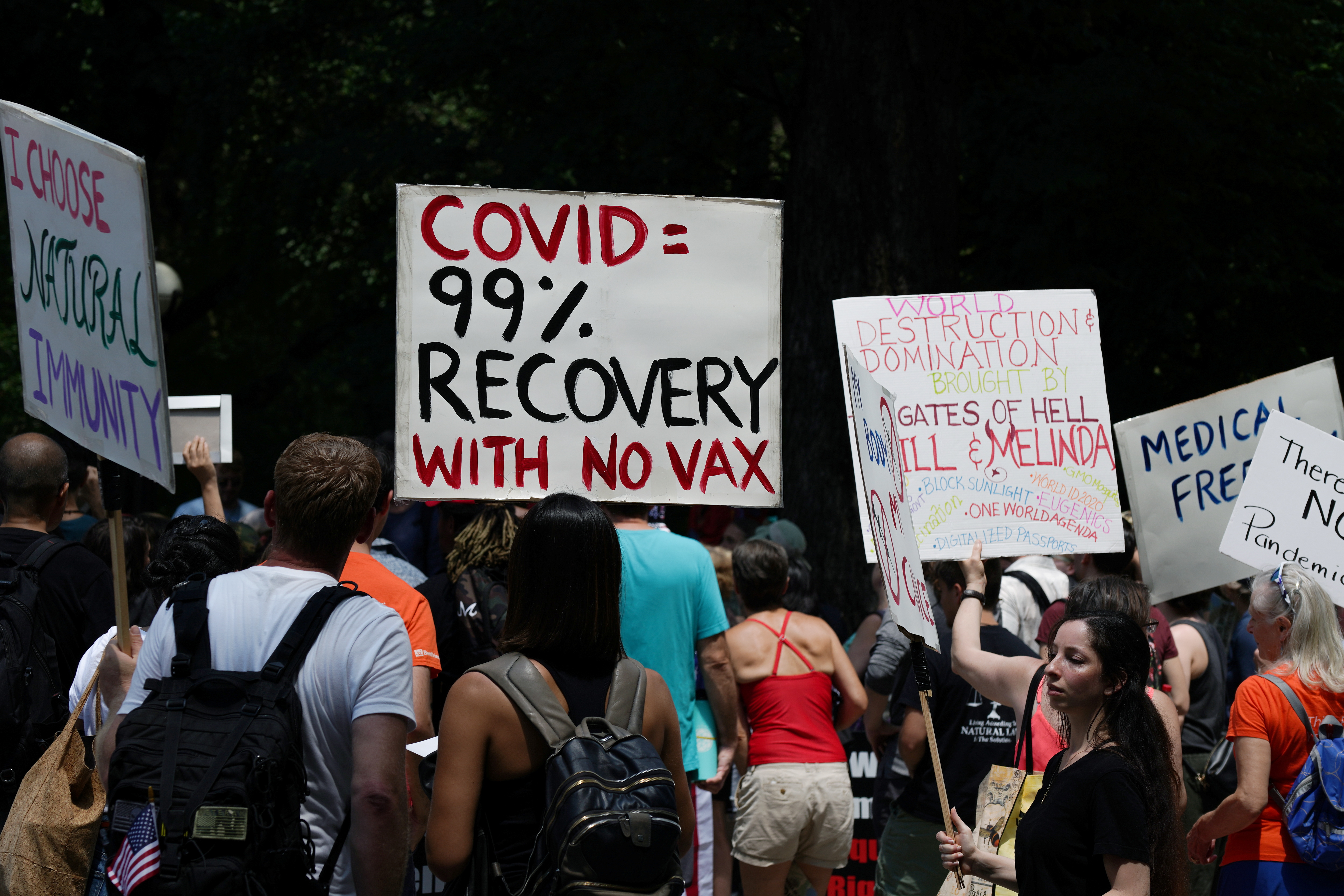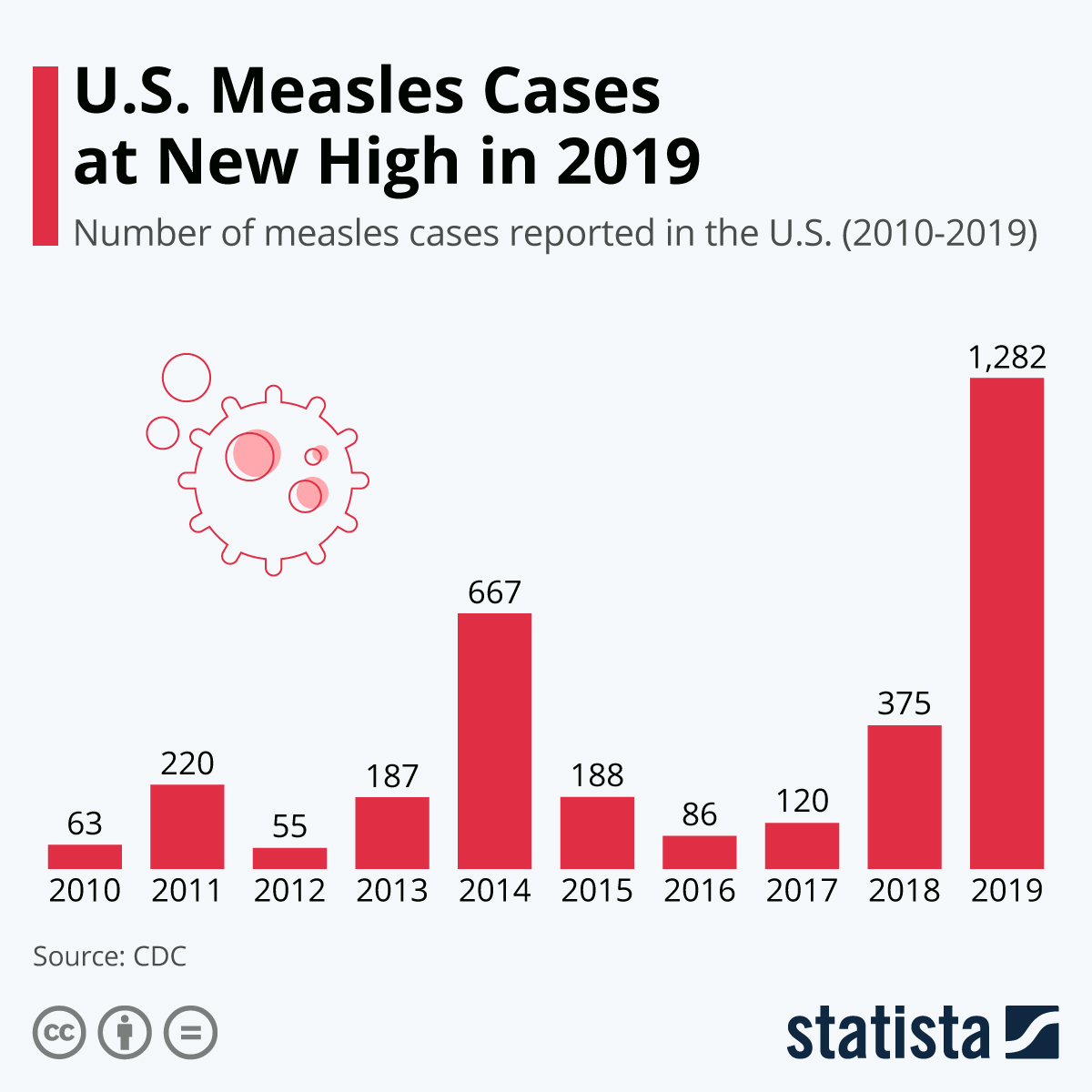I have written it before, but it bears repeating. We suck at probability. This is very apparent at these anti-vaxx drives we are seeing popping up in Canada, New Zealand and elsewhere. Like this sign below:

If only 1% die then isn’t that a really low rate, why should we care? 1% of America’s population is 4 million people. That’s the population of Toronto. 1% of the world’s population is 70 million, that’s the population of France. So 1% is too much to ask. People need to be vaccinated. That should be easy to understand right? Not quite.
One common resistance is, if people are vaccinated then how come they still get sick, or if the vaccines work then how come you need a booster. Posts like this for example:

Sadly, Lauren, who posted this, died of COVID. She was anti-vaxx and anti-mask. What is worse though is Lauren was a registered nurse who should have understood how vaccines work and probability.
Vaccines are not 100%. Period. That’s it. Anyone who says they are, is wrong. And anyone who uses that as an excuse to avoid them, is a moron.
They are not 100% safe. For example, with the measles vaccine, one in a million people have a severe reaction, and sometimes they die. It is a tragedy, but not a good reason to not get vaccinated. 1 in 4 people who contract measles will be hospitalized and 1-2 in 1000 will die. If you are unvaccinated and you come into contact with someone who has measles the chances of infection are 90%. It’s that contagious. And this is what it looks like,
The reason this isn’t a huge issue for most of us is we’re vaccinated as children, as is everyone around us. As a result, additional protection of herd immunity comes into effect. This means that if someone can’t be vaccinated, because of a medical condition for example, they are still protected because everyone around them is immune. And so the chances of them coming into contact with an infected person is very low. But again, it’s not 100%. The more people are unvaccinated, the higher the chances of meeting a contagious person gets, and the higher the chance of the disease spreading.
Now probability is a tricky thing. Sure, you’re chances of dying of measles is much higher than dying of the vaccine, but what are your chances of contracting measles in the first place? That has to be a factor right? Sadly the rates are rising again due to vaccination misinformation.

And what about autism? What about it? The Autism connection has been completely debunked but even if it hadn’t that still isn’t an excuse. Here is Penn & Teller to explain.
Vaccines are not 100% effective. Nothing is. There are no guarantees in life. And all you can do, all anyone can do, is improve the odds.
Wearing a seatbelt doesn’t guarantee you won’t die in a car crash – but it improves your odds.
Getting a university degree doesn’t guarantee a good paying job – but it improves your odds.
Owning a gun doesn’t mean you will shoot yourself – but it improves your odds.
Let’s say for the sake of argument that the vaccines were only 90% effective, heck let’s make it 75% That means that with one shot you’re 75% less likely to get infected. If you get 2 shots it’s 93.75%. If you get 3 shots it’s 98.44% and so on. But you can see how there is diminishing returns and you never get to 100%.
This example is grossly simplified. There would be other variables that would come into effect, such as mutation and immune responses, and so, on but you get the idea.
Nothing is guaranteed, but you can improve your odds.

